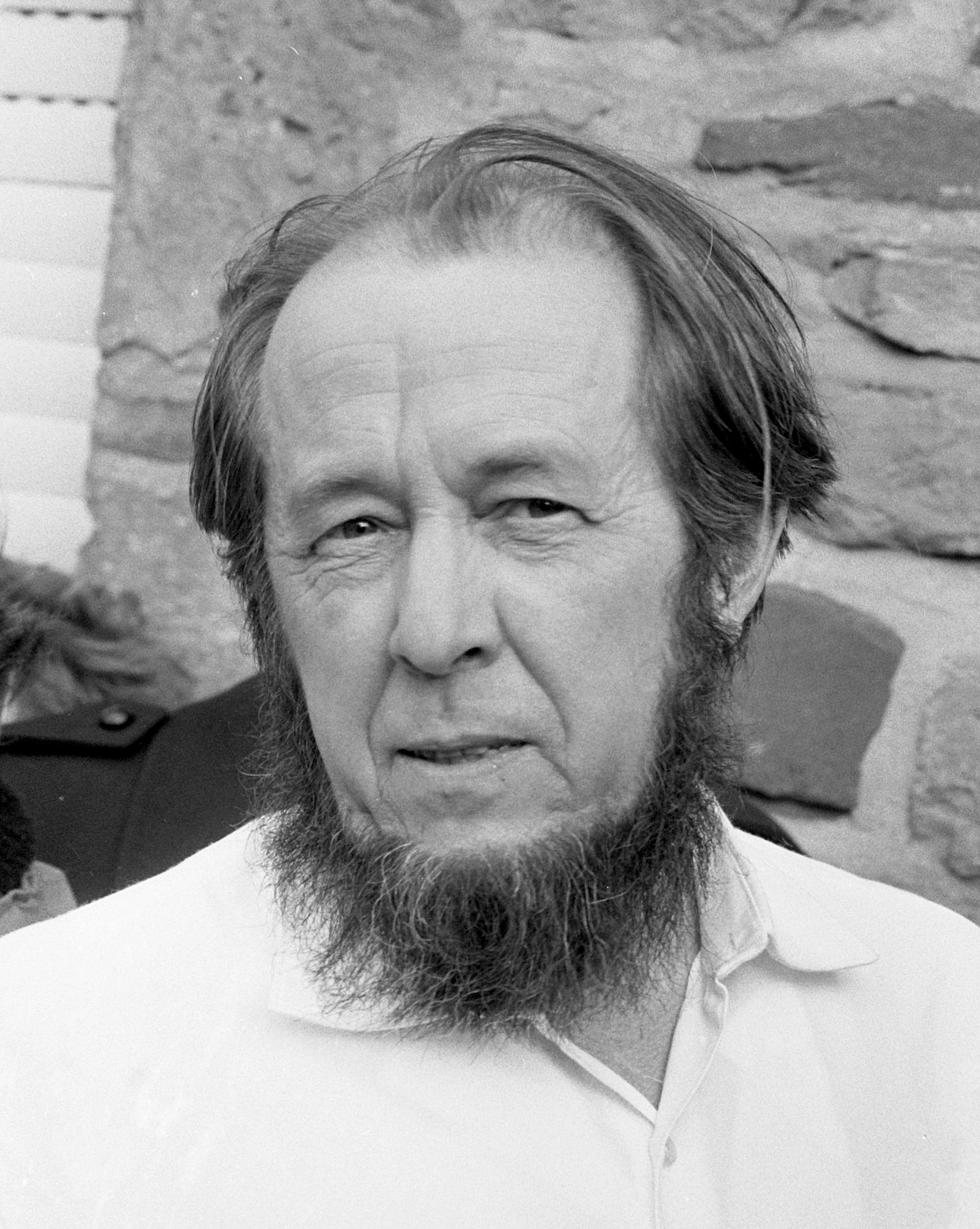Alexandr Isajevič Solženicyn najznámejšie citáty
Alexandr Isajevič Solženicyn citáty a výroky
„Talentovaný človek vie, že má čo rozdávať, a rád sa o svoje nadanie podelí s ostatnými.“
Prisudzované výroky
Varianta: Talentovaný človek vie, že má čo rozdávať a rád sa o svoje nadanie podelí s ostatnými.
Alexandr Isajevič Solženicyn: Citáty v angličtine
“Beat a dog once and you only have to show him the whip.”
Zdroj: One Day in the Life of Ivan Denisovich (1962)
“A genius doesn't adjust his treatment of a theme to a tyrant's taste”
Zdroj: One Day in the Life of Ivan Denisovich (1962)
Letter to three students (October 1967) as translated in Solzhenitsyn: A Documentary Record (1970) edited by Leopold Labedz (1970) “The Struggle Intensifies".
“… it's only on a black day that you begin to have friends.”
Zdroj: The First Circle
“Every man always has handy a dozen glib little reasons why he is right not to sacrifice himself.”
Zdroj: The Gulag Archipelago 1918-1956
“Oh, how hard it is to part with power! This one has to understand.”
Zdroj: The Gulag Archipelago 1918-1956
Letter to the Secretariat of the Soviet Writers’ Union (12 November 1969) as translated in Solzhenitsyn: A Documentary Record (1970) edited by Leopold Labedz (1970) “Expulsion".
Zdroj: One Day in the Life of Ivan Denisovich
Zdroj: One Day in the Life of Ivan Denisovich
“If you live in a graveyard, you can't weep for everyone.”
Zdroj: The Gulag Archipelago, 1918-1956: An Experiment in Literary Investigation, Books III-IV
BBC Radio broadcast, Russian service, as quoted in The Listener (15 February 1979).
Harvard University address (1978)
"Peace and Violence" (1973).
Open letter to the Fourth Soviet Writers’ Congress (16 May 1967) “The Struggle Intensifies,” Solzhenitsyn: A Documentary Record, ed. Leopold Labedz (1970).
Variant translation: Violence can only be concealed by a lie, and the lie can only be maintained by violence. Any man who has once proclaimed violence as his method is inevitably forced to take the lie as his principle.
As quoted in Solzhenitsyn: A Documentary Record (1974) edited by Leopold Labedz
Nobel lecture (1970)
Kontext: We shall be told: what can literature possibly do against the ruthless onslaught of open violence? But let us not forget that violence does not live alone and is not capable of living alone: it is necessarily interwoven with falsehood. Between them lies the most intimate, the deepest of natural bonds. Violence finds its only refuge in falsehood, falsehood its only support in violence. Any man who has once acclaimed violence as his METHOD must inexorably choose falsehood as his PRINCIPLE. At its birth violence acts openly and even with pride. But no sooner does it become strong, firmly established, than it senses the rarefaction of the air around it and it cannot continue to exist without descending into a fog of lies, clothing them in sweet talk. It does not always, not necessarily, openly throttle the throat, more often it demands from its subjects only an oath of allegiance to falsehood, only complicity in falsehood.
Nobel lecture (1970)
"How We Must Rebuild Russia" in Komsomolskaya Pravda (18 September 1990).
Harvard University address (1978)
Harvard University address (1978)
Variant translation: A loss of courage may be the most striking feature which an outside observer notices in the West in our days...
Harvard University address (1978)
“In our country the lie has become not just a moral category but a pillar of the State.”
As quoted in The Observer (29 December 1974).
